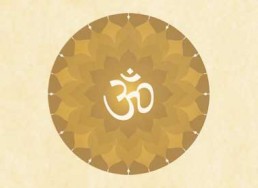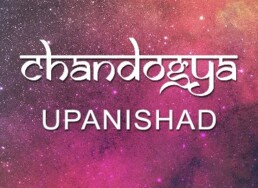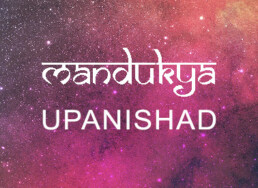Rajadhi Rajaya Prasahya
समे कामान् काम कामाय मा कामेश्वरो वैश्रवणो दधातु
कुबेराय वैश्रवणाय महाराजाय नमः
same kāmān kāma kāmāya mā kāmeśvaro vaiśravaṇo dadhātu
kuberāya vaiśravaṇāya mahārājāya namaḥ

Description
Excerpt from the book ‘Prayer Guide’ by Swami Dayananda Saraswati
Maharajaya Namah, salutations unto that Lord who is the king of all kings, the emperor, the Maharaja. All kings depend upon him. The jivas, even if they are kings, are all dependent upon Isvara, but Isvara is one who is not dependent; he is maharaja.
Raja-adhi-rajah. There are many kings, rajas. Amongst them, he is the adhi-raja. Rajanam adhikrtya raja bhavati, on whom all the rajas are centred, presiding over all the kings, he is the king; or from the standpoint of all the kings, he is the real king.
Prasahya sahine. Prasahya means totally, absolutely. Sahine, to the one who is absolutely pleased with himself. It is because of this that he is the rajadhi-raja, king of all kings.
Namo vayam vaisravanaya kurmahe. Namo is namah, salutations to him, tasmai namah. Vaisravana is the one who is in the form of Indra, the king of the heavens, the king of all bounty, rains, etc. Vayam is we. Vayam kurmahe namah, we offer our salutations, vaisravanaya, to Vaisravana.
Sah me kaman kama-kamaya. Sah means he, that Lord, isvara, and me means me. What kind of me? Kama-kamaya, the desiring me; the one who desires a variety of objects. That which is desired is the object, kamyate iti kamah. Kamanam kamah, the desirer for objects is called kama-kama. Sah me kama-kamaya, unto me who is the desirer of objects, dadatu, may he give, or let him give. May he give all the objects of desire, kaman dadatu.
Who is he? Kamesvarah, kamanam isvarah, the Lord of all kama, desires and objects of desire. You cannot ask anybody else for the fulfillment of your desires. You can ask only the owner of everything. Only the Lord can give everything to us because, being the creator, everything belongs to him. Therefore he is Kamesvarah, the Lord of all objects who is also in the form of objects. Vaisravana, Indra is only symbolic, an upalakshana, for all the Gods. Indra also means the Lord of the heavens.
Kuberaya vaisravanaya maharajaya namah. Salutation unto the Lord of wealth, Kubera, the son of Visravas, who is the king of kings. Laksmi is the real money but she appoints Kubera as the presiding deity of money. What you want to gain here in this world is the power of Kubera and what you want to gain in heaven is the power of Vaisravana, Indra. Therefore, you have the words maharajaya namah, which means salutations unto that maharaja, the king of all kings, the Lord who is in the form of Kubera and Vaisravana. There is only one Lord. All Gods are this one Paramesvara who assumes these different forms from different standpoints.
Other Om Shlokams
Anantam Vasukim Sesham
Anantha, Vasuki, Sesha, Padmanabha and Kambala, Shankapala, Dhritharashtra, Thakshaka and Kaliya are the names of nine great serpents
Ashtavakra Gita
Ashtavakra Gita - Full text and lyrics, audio with translation, meaning, word-by-word meaning, Sanskrit, English, Telugu, Kannada, Tamil and more
Bali Vibhishano Bhishma
Bali, Vibhisana, Bhishma, Prahlada, Narada, Dhruva - these are the six famous Vishnu-bhaktas - meditating upon all of these, will destroy sins.
Chandogya Upanishad All Verses
Chandogya Upanishad This is the English translation of the Chandogya-upanishad, including a commentary based on Swami Lokeswarananda’s weekl
Dharmo Vivardhati Yudhishtira
Dharma grows with the praise of Yudhistira, sins die with the praise of Bhima, enemies are extinguished with the praise of Arjuna, there will be no ill-health with the praise of Nakula and Sahadeva.
Harim Haram Harishchandram
Hari, Hara, Harischandra, Hanuman, and Halayudha (Balaram), if these five 'Ha's are meditated upon, when getting up from the bed in the morning, there will not be even a touch of harm.
Kaivalya Upanishad All Verses
The Kaivalya Upanishad is a short yet profound text in Vedantic literature, classified among the minor Upanishads, yet carrying the essence of the highest spiritual teachings. It belongs to the Atharva Veda and is deeply revered in the Advaita…
Kapilam Darpanam
Upon waking one should see the Sun, mirror, cow, prosperous people, kings, teachers and donors of food.
Kapilam Kamadhenum Ca
May we meditate on Kapila, Kamadhenu, Kalpavriksha, Kaustubha(gem), Lakshmi, the daughter of the ocean, Kubera and Moon.
Karkotakasya Nagasya
Singing in praise of the Karkotaka serpent by Damayanthi for Nala, and in praise of Raja-rishi Rutuparna - led to the destruction of Kali.
Mandukya Karika
The Mandukya Karika represents the first systematic philosophical exposition of Advaita Vedanta, transforming the concise twelve-verse Mandukya Upanishad into a comprehensive 215-verse treatise on non-dual philosophy.
Mandukya Upanishad All Verses
Mandukya Upanishad - A detailed Summary The Mandukya Upanishad is the shortest yet one of the most profound Upanishads, consisting of just 12 verses. It explores the n
Mulato Brahmarupaya
To you, O Vriksharaja (King of trees) who takes on the form of Brahma at the roots, Vishnu in the middle and Shiva at the extremes, our salutations
Mule Brahma Tvaci Vishnu
Brahma is at the root, Vishnu is in the bark and Sankara is in the branches, all devas are in each and every leaf. Salutation to you O Vaasudeva.
Na Karmana Na Prajaya
Not by work, nor by progeny or by wealth, but by renunciation alone have some attained immortality. That (immortality) which is even beyond the heaven, is attained by the self-controlled reununciates
Na Tatra Suryo Bhati
Neither does the sun shine there, nor the moon with all the stars, nor does this lightning shine. What to say of this fire? Everything shines after him who alone shines. By His light all this shines v
Omkaram Bindu Samyuktham
Yogis meditate forever on Aumkara associated with the Bindhu, salutation to the Aumkara, the grantor of wishes and salvation. We call on Thee, Lord of the hosts, the poet of poets, the most famous of
Prahlada Narada
I remember and meditate upon the Bhagavathas (god's ardent devotees) Prahlada, Narada, Parasara, Pundarika, Vyasa, Ambarisha, Shuka, Shaunakha, Bhishma, Rukma, Angadha, Arjuna, Vashishta, Vibhishana -
Prātah Smaranam
Pratah Smaranam is a prayer composed by Sri Adi Shankaracharya consisting of three stanzas in which the mind (manas) speech (vak), and body (kaya) of the individual are
Punya Shloko Nalo raja
Extolled for their virtues are King Nala, Yudhishtira, Sita and Janardhana
Purna Kumbha Mantra
Pūrna-kumbha mantra The four verses of the purna-kumbha-mantra, from na karmanā na prajayā to yah parah sah maheśvarah,are typically chanted when
Purusha Suktam
The Purusha Suktam gives a description of the spiritual unity of the universe. It presents the nature of Purusha, or the cosmic being, as both immanent in the manifested world and yet transcendent to
Sanyasa Suktam
Excerpt from the book 'Prayer Guide' by Swami Dayananda Saraswati NA KARMANA Amrtatvam anasuh, amrtatvam anasire praptavantah, these people have gained immortality or freedom
Sarve Veda Yatpadam
All the Vedas talk about which goal, to know which, people take to a life of study and spiritual discipline, I tell you in brief - that is om.
Yani Kani Ca Papani
Yani Kani Ca Papani - Oh god! Whatever sins I have committed all my lives (including previous lives), please destroy them with every step I take around you. - In Sanskrit with Audio, in multiple languages with English Meaning and Significance.
Rajadhi Rajaya Prasahya – Om – In Sanskrit with English Transliteration, Translation and Meaning. Commentary for selected Shlokams. With commentary by Swami Dayananda



